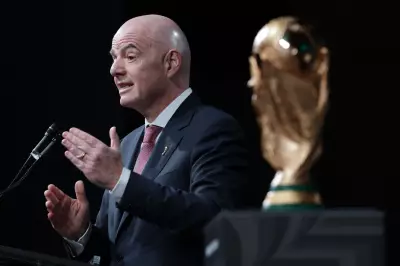
In a startlingly candid revelation, veteran football manager David Moyes has laid bare the profound psychological scars left by his tumultuous tenure at Sunderland, describing how the beautiful game can become a source of genuine trauma.
The Sunderland Nightmare That Changed Everything
Moyes's time at the Stadium of Light during the 2016-17 season proved to be one of the most challenging periods of his storied career. The Scottish manager, known for his resilience and tactical acumen, found himself navigating a perfect storm of club turmoil, fan unrest, and ultimately, relegation.
"There are moments in football that can make you physically ill," Moyes confessed, reflecting on the experience that tested his mental fortitude like never before. "The pressure at Sunderland was unlike anything I'd experienced."
The Psychological Toll of Management
What makes Moyes's revelations particularly compelling is his willingness to discuss the often-hidden mental health aspects of football management. While fans see the touchline theatrics and post-match interviews, few witness the private anguish that accompanies high-stakes decision-making.
- 24/7 Pressure: The relentless nature of modern football management
- Public Scrutiny: Living every decision under the microscope of media and fans
- Personal Responsibility: The weight of affecting players' careers and club fortunes
- Identity Crisis: When professional failure threatens personal identity
Beyond the Touchline: A Human Story
Moyes's experience at Sunderland serves as a powerful reminder that behind every manager's statistics and tactical decisions lies a human being vulnerable to the same emotional turmoil as anyone else. His candid discussion breaks the traditional stoic image of football management, opening up important conversations about mental health in sport.
"You carry the pain with you," Moyes admitted, suggesting that certain footballing experiences leave permanent marks that reshape a manager's approach and perspective forever.
Legacy of the Sunderland Experience
The lessons learned during that difficult period have clearly informed Moyes's subsequent career choices and management style. His willingness to speak openly about the psychological challenges represents a significant shift in football culture, where mental health is increasingly recognised as crucial to performance and longevity.
As football continues to grapple with the wellbeing of its participants, Moyes's testimony stands as both a cautionary tale and a beacon of progress in understanding the true cost of management at the highest level.





